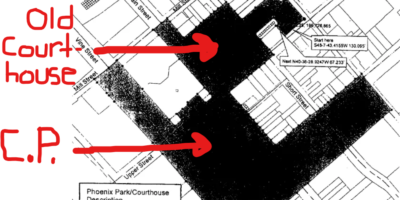Will U.S. foreign aid impede the will of the Egyptian people?
By Michael Dean Benton
As I write this (Sunday February 13), the Egyptian dictator Hosni Mubarak has been forced by the Egyptian people to step down as president after thirty years of ruling the country with an iron fist. The Armed Forces Supreme Council has temporarily taken control of the nation while the Egyptian people are still occupying Tahrir Square and are publicly demonstrating for more democratic openness in the decision making on the future direction of their country.
As we congratulate the Egyptian people on this partial revolutionary victory it is time for Americans to reflect on their own involvement with and support of the 30 year reign of Mubarak.
Mubarak and the U.S.: true valentines
We have long been a major problem in the world. We provide back-door support of any brutal regime that privileges American corporate interests over the interests of their own people. We actively destabilize, if not outright attack, any social-justice-minded leader that privileges their own people over the profiteering American/Western way of privatizing natural resources or public services.
Our involvement with Mubarak’s dictatorship has been that of a close friendship, with many American presidents citing his support of Israeli and American ambitions in the region as a necessary evil. A series of American presidents have also claimed access to the Suez Canal for American military ships as a geopolitical necessity.
Our involvement takes on an even more sinister tone, though, as we recognize that as far back as 1995 during the Clinton presidency, through a process known as extraordinary rendition, the C.I.A. has been transporting prisoners to Egypt for interrogations and torture. These have been administered in Egypt by the 18 year former-head of the feared Egyptian National Intelligence Agency Omar Suleiman.
For 18 days as the world watched breathlessly, the Egyptian people withstood attacks by Mubarak’s police forces. They withstood the incarceration and torture of thousands of people abducted from the streets, open attacks upon journalists by pro-Mubarak thugs, and the murder of hundreds of protestors. Through this period the Obama administration continued its financial and moral support of the Mubarak regime.
Only when they lost trust in Mubarak’s ability to contain the people did they shift their support to the now Vice-President Omar Suleiman. When Mubarak presented an incoherent public refusal to step down the people responded with rage against the symbols of national power. They forced Suleiman the next day to announce that President Mubarak would indeed step down and that the Armed Forces Supreme Council would take control of the nation.
On the surface this is exactly what the people have demanded all along. The president has stepped down. The military has suspended the constitution and dissolved Mubarak’s parliament. Still there is tension in the streets as the military demands the Egyptian people now disband and go home. Egyptians from all walks-of-life have refused to go home and continue to occupy Tahrir Square and other important public places. A great victory has been achieved by the Egyptian revolutionaries, yet the people recognize they are still far from the democratic society they desperately want for their country.
Federal taxes, foreign aid, southern military corps
Mostly ignored in the mainstream American media is the fact that Omar Suleiman the former head of Egyptian National Intelligence and just recently the Egyptian Vice President under Mubarak, is a favorite client of the American C.I.A. and an influential part of the Armed Forces Supreme Council.
The Egyptian military, while as not as explicitly corrupt or brutal as Mubarak’s official police and Suleiman’s secret police forces, is still dependent on American largesse for its financial solvency. Will the military truly seek to install a true democracy when both the American and Israeli governments fear actual democracy in Egypt, preferring instead the docile-to-American-interests military as rulers of Egypt.
One may hesitate to accept the claim that the Egyptian military is so subsumed to American and Israeli interests as to subvert their own people’s movement for democracy. This is why the Institute for Southern Studies magazine, Facing South, recently reviewed the Department of Defense’s own records of American corporate contracts to supply the Egyptian military. What the institute found is important in understanding the extent of American support of Mubarak and the implications of the Egyptian military’s assumption of power.
Egypt, after Israel, has been the second-largest recipient of foreign aid from the U.S. Government. It has been receiving approximately 2 billion dollars a year. Where does that money go and what does it support? According to the DOD resources researched by Facing South, the majority of it goes back to corporate military contractors that supply Egypt with high-tech weapons, specialized training and surveillance systems. Facing South’s report focuses on contracts located only in the American South. One might surmise that this is but the tip of the iceberg.
A number of major corporations have benefited in the last year from American taxpayers support of the Egyptian military structure. These include Lockheed Martin (Fort Worth, TX/Orlando, FL), which received $213 milllion for 20 F-16 fighter jets and $46 million for night vision sensor systems for Apache Helicopters; DRS C3 and Aviation (Horsham, PA), what was awarded $65 million for surveillance hardware and services; L3 Communications Ocean Systems (Sylmar, CA/Garland, TX) which took $24.7 million for sonar equipment and $6.6 million for military imaging equipment; Deloitte Consulting (Arlington, VA), who pocketed $28.1 million for planning and support for aircraft programs; and Boeing (Mesa, AZ), $22.5 million winners for 10 Apache helicopters.
This is only part of the Facing South report, but it gives us a clear glimpse into the level of support the American government, through your taxes, provides to the Egyptian military. It also shows how taxpayer monies given in “foreign aid” get directed back into the coffers of American weapons manufacturers. The defense industry is one of the most powerful and influential American lobbying forces. Most elected officials are afraid to directly challenge the military-industrial system.
So, yes, my heart sings at the courageous victories of the recent brave Egyptian people as they poured into the streets and demanded their freedoms from a brutal dictatorship long supported and funded by the American military-industrial system.
At the same time, I am cautious, and even fearful, about the implications of the Egyptian military taking over the operations of government. I believe that American citizens need to join with the Egyptian democratic revolutionaries to demand that our military-industrial dominated governments support the institution of democracy in Egypt, in other parts of the world, and here at home.
For more on the Institute for Southern Studies: http://www.southernstudies.org/http://www.defense.gov/contracts/. To access the Department of Defense’s contract database: http://www.defense.gov/contracts/.




Leave a Reply